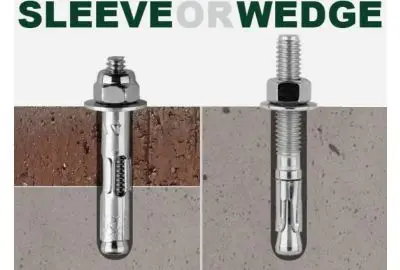Manufacturing Process of Mild Steel Stud Bolts for Various Applications
Oct . 21, 2024 15:32 Back to list
Manufacturing Process of Mild Steel Stud Bolts for Various Applications
The Importance of Mild Steel Stud Bolt Factories in Modern Manufacturing
In the realm of manufacturing and construction, fasteners play a critical role in the integrity and durability of structures and machines. Among the various types of fasteners, mild steel stud bolts are widely recognized for their strength, versatility, and cost-effectiveness. Mild steel stud bolt factories have become a linchpin in the production of these essential components, contributing significantly to various industries, from automotive to construction and beyond.
Mild steel, known for its excellent tensile strength and ductility, is an ideal material for stud bolts. It is an alloy of iron with a small percentage of carbon, typically around 0.05% to 0.25%. This composition provides mild steel with sufficient toughness and weldability, making it suitable for high-stress applications. The manufacturing process of mild steel stud bolts involves several intricate steps, starting from raw material procurement to surface finishing. Factories that specialize in this production line employ state-of-the-art machinery and technology to ensure quality and precision.
The Importance of Mild Steel Stud Bolt Factories in Modern Manufacturing
Quality control is paramount in the production of mild steel stud bolts. Factories implement rigorous testing standards to ensure that each bolt meets the required specifications. This includes tension tests, shear tests, and dimensional inspections. Manufacturers often use certified laboratories to conduct these tests, ensuring that the bolts can withstand the rigorous demands of their respective applications. Compliance with international standards, such as ASTM (American Society for Testing and Materials) or ISO (International Organization for Standardization), is also crucial for maintaining credibility and reliability in the market.
mild steel stud bolt factory

Another significant aspect of mild steel stud bolt factories is their commitment to sustainability. The manufacturing process involves energy consumption and generates waste, so many factories are now adopting eco-friendly practices. This includes using recycled materials and implementing energy-efficient machinery. Additionally, modern factories are increasingly aware of their carbon footprint and strive to minimize it through waste reduction and better resource management.
The versatility of mild steel stud bolts makes them an essential component across various industries. In construction, they are utilized for joining structural elements, providing stability and strength to buildings and bridges. In the automotive sector, they are essential for securing engines and chassis components. Their applications extend to machinery, furniture, and even electronic devices. This widespread utility has led to a growing demand for these fasteners, prompting factories to innovate and expand their production capabilities.
In recent years, technological advancements have transformed the manufacturing landscape. Automation and computer numerical control (CNC) machines enhance precision and reduce production time. These innovations enable factories to produce large volumes of stud bolts while maintaining quality, thus meeting the increasing demands of their customers. Furthermore, the rise of e-commerce has allowed manufacturers to reach a broader audience, facilitating direct sales to businesses and individual consumers alike.
In conclusion, mild steel stud bolt factories play a crucial role in the manufacturing ecosystem, providing indispensable components vital to numerous industries. Through a combination of quality material selection, stringent testing, and technological innovation, these factories ensure the production of reliable and durable fasteners. As industries continue to evolve, the commitment of mild steel stud bolt manufacturers to quality and sustainability will remain a driving force in supporting modern construction and manufacturing practices.
Latest news
-
Premium Cabinet Bolts Supplier - Quality & Wholesale Fasteners
NewsAug.09,2025
-
Reliable Cabinet Bolts Supplier | Quality & Bulk Fasteners
NewsAug.07,2025
-
Wire Bolts Suppliers & Manufacturer | Factory Direct Price
NewsAug.06,2025
-
Premium Wire Bolts Suppliers | High-Quality Bolts
NewsAug.05,2025
-
Trusted Wire Bolts Suppliers - Durable & Reliable Solutions
NewsAug.04,2025
-
Wire Bolts Company | Premium Industrial Fasteners
NewsAug.03,2025
